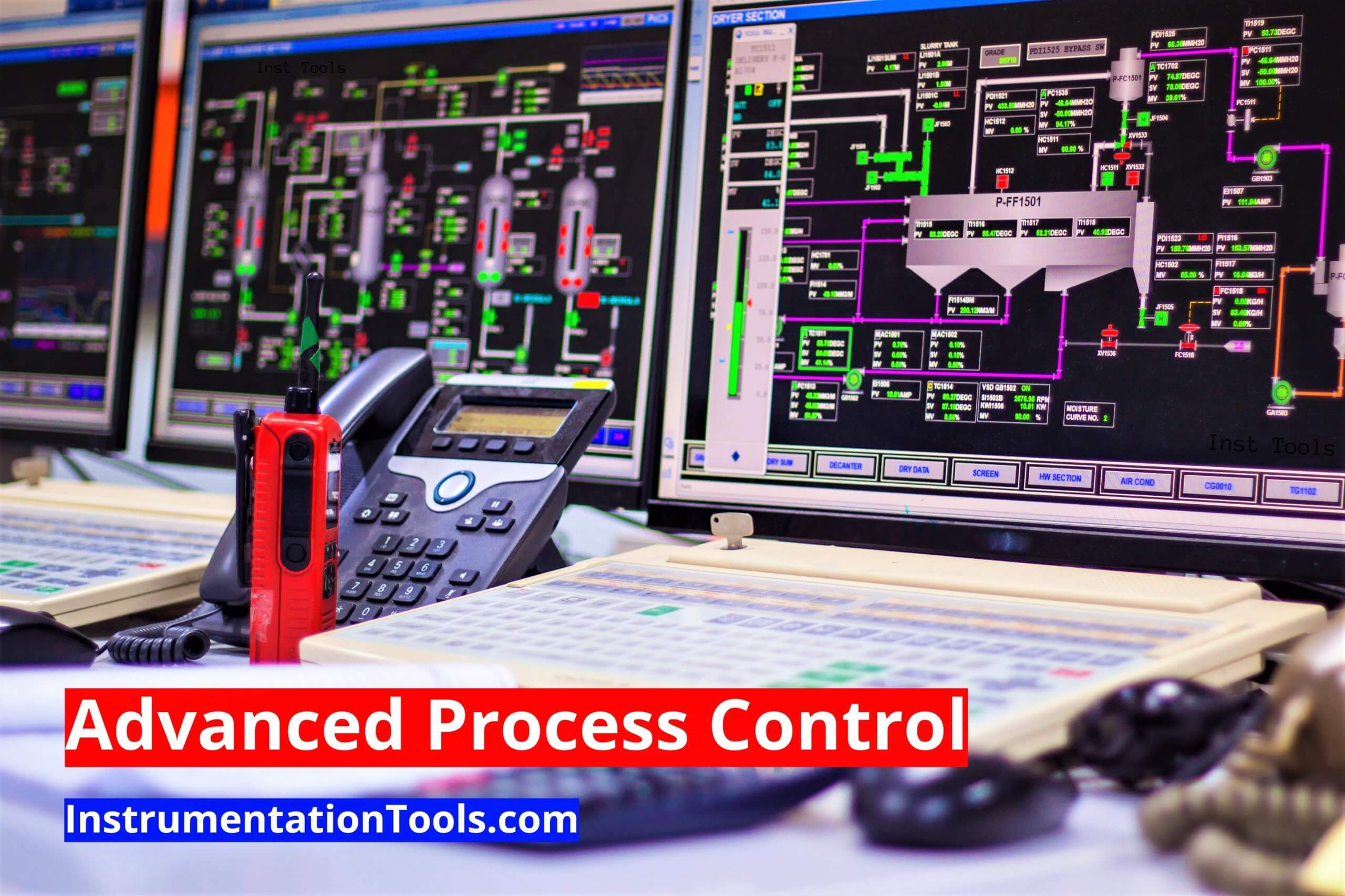Advanced process control (APC) is a complex subject. Involvement of various hardware and software clubbed to generate a system, can control the overall requirement of the control loops.
In other words, advanced process control brings together a wide range of control strategies and types of technology.
The goal of advanced process control (APC) is to increase the performance of control over processes that contribute to production. Applying constant control over this process not only helps to simplify the production process but also helps to make production output results more predictable.
Amending the production process also helps get rid of the waste that occurs when processes have to be rerun. Eliminating such waste further cut the total cost in the manufacturing process.

The advanced process control (APC) device consists of a programmable microcontroller and an advanced program using
Hence, advanced process control refers to the implementation of control based on computing technologies, obtaining the following advantages:
Advanced Control is more than only the use of digital computers and their related advanced software. It is also more than the use of complex control algorithms that help to improve the fine regulation.
Advanced control describes the layout of an infrastructure of a system of engineering that brings together elements of different disciplines, from control engineering, signal processing, statistics, decision theories, engineering software, even intelligence techniques artificial.
The practice of advanced control lies in understanding the process, control problems, the dynamics of the process, as well as tying it to the most appropriate method and technology for control.
Advanced process control (APC) is the application of a wide range of disciplines and technologies to refine process control or discuss a peculiar problem related to a process.
APC is interdisciplinary in nature. It extracts knowledge in its application of statistics, decision theory, engineering, signal processing, and artificial intelligence (AI).
To accomplish the planned process control objectives, an APC technology is generally linked to the distributed control system (DCS) that controls the process. Due to its inherent tendencies to resolve problems that have multiple variables, advanced process control is used in a variety of industries.
Generally, in process control, a distributed control system (DCS) is used to control a process in a factory. Distributed control system means that the components of the system are spread throughout the entire process, each with different degrees of function.
An advanced process control (APC) tool generally connects to the distributed control system through well-established communication protocols or a software interface. During this communication exchange, APC will track all information submitted to DCS regulatory controls to help isolate a problem or calculate the different variables manifested in a problem.
Do you have any experience with APC? Share with us through the comments section.
If you liked this article, then please subscribe to our YouTube Channel for Instrumentation, Electrical, PLC, and SCADA video tutorials.
You can also follow us on Facebook and Twitter to receive daily updates.
Read Next:
Learn the example of flip-flop PLC program for lamps application using the ladder logic to…
In this article, you will learn the STAR DELTA programming using PLC controller to start…
Lube oil consoles of rotary equipment packages in industrial process plants are usually equipped with…
Rotating equipment packages such as pumps, compressors, turbines need the lube oil consoles for their…
This article explains how to blink lights in ladder logic with a detailed explanation video…
In this article, a simple example will teach you the conversion from Boolean algebra to…
View Comments
Excellent information provided by R jagan mohan Rao
Dose the cascade control, ratio control or feed forward etc. belong to the APC?
By the this article, I understand that APC is bit advanced nature. Cascade, ratio, feed forward are part of APC, at the same time with additional features. It depends on nature of process parameters to be controlled.
Article is easily understandable. I googled for the APC topic, this article brought me a clear picture about APC. Thanks to author.